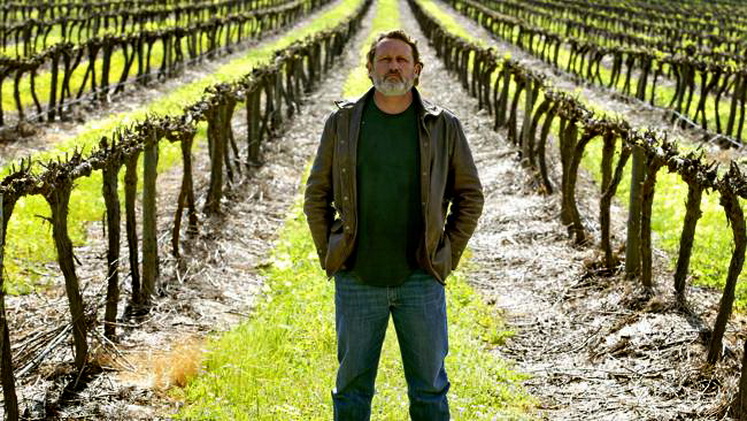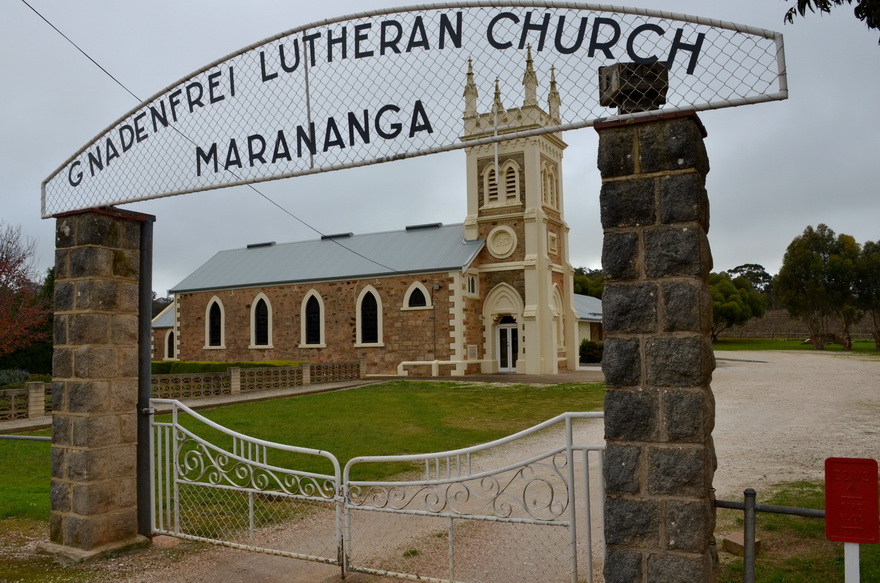Dave Powell has lost his company and faces bankruptcy
‘I’m deeply distressed and saddened by the events that have unfolded at Torbreck over the past week,’ Dave Powell told the press. ‘It was never my intention to leave Torbreck and to have lost the company, my hard work of 20 years, and my sons’ inheritance is an absolute nightmare for me.’
Earlier this month, news broke that the winery’s owner Pete Kight and the board of directors made a decision to part company with Dave Powell. ‘I was offered a deal five years ago when I had my back to the wall financially,’ says Powell, ‘which my lawyer told me not to sign. In extremis and under the illusion of goodwill I signed it anyway and that one stupid mistake has cost me my life’s work. I was offered a ‘job’ after losing Torbreck, selling my own wine on commission.’
Dave Powell is now facing bankruptcy, living in a house given to him by friends, and driving a borrowed car. He has written an open letter to his fans and customers, which you can read here . In it he claims he was screwed by Kight, and let down by his partners. Kight says he gave Powell plenty of opportunity to buy back the farm, and a big expense account. There’s talk of a $92,000 tab from Danish strip club, a $15,000 lunch at Tetsuya’s and more here.
How did it come to this?
‘Of all the Barossa Valley wineries to grab the headlines in the US,’ James Halliday tells us, ‘with demand pulling prices up to undreamt-of levels, Torbreck stands supreme. David Powell has not let success go to his head, or subvert the individuality and sheer quality of his wines, all created around very old, dry-grown, bush-pruned vineyards. The top quartet is led by The Laird (single vineyard Shiraz), RunRig (Shiraz/Viognier), The Factor (Shiraz) and Descendant (Shiraz/Viognier); next The Struie (Shiraz) and The Steading (Grenache/Mataro/Shiraz).’
 The Laird sells for $700 a bottle. Yes, it’s up there with Grange and Hill of Grace. The Runrig is only about $250, and The Descendant half of that. Same goes for The Factor. Jamie Goode at wineanorak tells us that ‘Torbreck is the name of the forest in Scotland where Dave Powell worked as a woodcutter. Steading is the name of a pub in Edinburgh … Struie is a mountain he worked on in Scotland; Factor is the guy who runs the woodcutting operation. Descendant is descended from Runrig; and Runrig? In one of the pubs Powell drunk in on Struie, the band Runrig played, and then the pub burnt down when they re-opened . ..’
The Laird sells for $700 a bottle. Yes, it’s up there with Grange and Hill of Grace. The Runrig is only about $250, and The Descendant half of that. Same goes for The Factor. Jamie Goode at wineanorak tells us that ‘Torbreck is the name of the forest in Scotland where Dave Powell worked as a woodcutter. Steading is the name of a pub in Edinburgh … Struie is a mountain he worked on in Scotland; Factor is the guy who runs the woodcutting operation. Descendant is descended from Runrig; and Runrig? In one of the pubs Powell drunk in on Struie, the band Runrig played, and then the pub burnt down when they re-opened . ..’
Dave studied economics and got into the wine business by accident after working at Yalumba in 1981. He travelled widely and worked lots of vintages, and ten years later turned up at Rockford. Here he developed an interest in old neglected vineyards in the Barossa, and he started buying them and reviving them. He made his first wines in 1994, and less than 10 years later ran into financial problems and sold a majority stake of Torbreck to Jack Cowin who owned Hungry Jack’s.
Source: News Ltd
What really happened?
You might wonder how a winery that sells its bottles for hundreds of dollars can run into money problems but, back in 2003, Powell wasn’t getting that kind of money yet for his wines. The Laird isn’t made every year either – so far there have only been 3 – and Huon Hooke reports that Torbreck paid $16,000 a ton for the grapes for the 2008 to Malcolm Seppelt whose Marananga vineyard supplied most of the fruit. Only 350 dozen were made. The back label states: ‘The laird of the estate in Scotland is master of all he surveys. This vineyard is second to none in the [Barossa] valley, perhaps even the world.’
What’s the Laird like to drink? Does it deserve to be up there with our best reds? I don’t know, but an unnamed source in the SMH says: ‘[The 2005] is a big, powerful, concentrated wine, with 14.8% alcohol. It shows typical Torbreck massive flavour and character, tremendous fruit sweetness, power throughout the palate, lashings of tannin and an almost chewy thickness. It could hardly be termed elegant, but shows remarkable balance for such a big wine.’
In 2008, American billionaire Pete Kight bought Torbreck, including Powell’s minority stake, for some $20 million. Craig Isbel was put in charge of the cellar, leaving Powell free to travel the world to build the brand. Kight says he gave Powell 5 years to raise the money to buy Torbreck back, but Powell didn’t do that. The 5 years is over, and Powell claims now that he shouldn’t have signed the contract, that his lawyer had warned him bout that clause.
Kight says Powell had no equity in the business anyway. Powell claims Kight and the board insulted him by offering him a job selling his own wine on a commission basis.Kight told The Advertiser that he’d leant Powell more than $3 million over the past few years, and that the content of Powell’s open letter was largely fictitious. ‘Dave’s letter is just completely made up out of thin air, almost from start to finish,’ Kight told the paper.
Clearly Powell is a natural marketer of some skill. He’s also one of those larger-than-life characters who don’t quite fit into the tight clothes business or society hands out to us. ‘20 years of my life,’ he writes in his open letter, ‘all the backbreaking work of the early days bringing those beautiful old vineyards back to life. All the heart and soul poured into my wines, each with their own special character and story. Two decades of literal sweat, blood and tears, gone. The inheritance I’d built from nothing for my sons, and the staff who’d become like family. Gone. Just like that.
‘I’ve seen the article in Wine Spectator Pete claiming that I haven’t been responsible for hands-on winemaking since 2006. That’s just complete bullshit. I’ve been in the Barossa alongside the troops every single harvest since I founded Torbreck in 1994, and I take full personal responsibility for the quality of every wine with a Torbreck label on it.’
Pushing Powell out of the business is a risk for Torbreck, says the Advertiser, since about two thirds of the expensive grapes that go into Torbreck’s top wines are sourced from third party growers with whom Powell had handshake deals with. Meanwhile Powell claims that the 2009 Laird should not be released because it’s spoilt by volatile acidity which got out of control while he was overseas. Sour grapes? No. ‘For the first time in five years,’ Powell says, ‘the volatile acidity in the wine had gone through the roof and left unchecked … we tried to remedy it, but it couldn’t be done. I believe the ’09 wine is unsaleable at the high price we command for it.’
Powell is already planning his comeback. ‘As I sit here looking out over the river in the valley I love so much,’ he writes, ‘I’m determined that this will not be the last you have heard from me. Give me a few years and my son and I will have many great wines for you to enjoy, from some very surprising vineyard sources.
‘I have been accused of playing the victim, of being dishonest, of being reckless with company money. If I’m a victim it’s of my own stupidity in signing that deal in the first place and I’m the first to admit it. The rest though, I strenuously deny. Money can buy a lot of silence but in the end the truth will always out. They can take the company I built, but they can’t take my passion.’
Footnote:
If you feel like trying a Torbreck wine, Huon Hooke suggests The Steading Blanc 2012: ‘a delicious, character-filled $39 Marsanne, Viognier, Roussanne blend.’ North Sydney Cellars is the only place I can find it. You can buy The Steading Grenache Shiraz Mataro 2009 from Dan M’s at $40.
Kim


